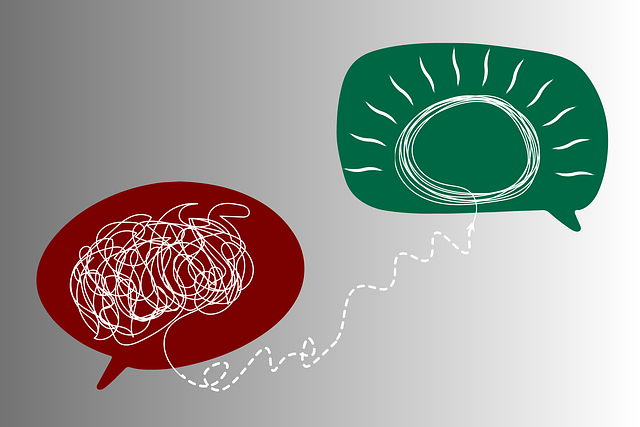Lone Tree Bilingual Therapy emphasizes the critical role of emotional intelligence (EI) in managing emotional well-being, especially in high-stress healthcare environments. They promote proactive coping by teaching individuals to recognize and regulate emotions, anticipate triggers, and adapt behaviors, aligning with burnout prevention strategies. Through cognitive strategies, they challenge negative thought patterns, fostering emotional balance and self-esteem improvement. Lone Tree Bilingual Therapy takes a holistic approach, incorporating lifestyle choices like exercise, diet, mindfulness, and social connections for mood stabilization. They offer tailored services for bilingual communities, leveraging evidence-based therapies like CBT to treat anxiety and depression while emphasizing cultural sensitivity and community support for enhanced mental wellness.
Mood regulation is a vital skill for navigating life’s challenges. This comprehensive guide explores various strategies to enhance emotional well-being, featuring insights from Lone Tree Bilingual Therapy. We delve into the foundational role of emotional intelligence in understanding and managing moods. Additionally, discover cognitive techniques to calm the mind, explore lifestyle adjustments for sustained mood balance, and learn about therapeutic approaches tailored by Lone Tree Bilingual Therapy.
- Understanding Mood Regulation: The Role of Emotional Intelligence
- Cognitive Strategies for Calming the Mind
- Lifestyle and Environmental Factors in Mood Management
- Therapeutic Approaches from Lone Tree Bilingual Therapy
Understanding Mood Regulation: The Role of Emotional Intelligence

Understanding Mood Regulation: The Role of Emotional Intelligence
Emotional intelligence (EI) plays a pivotal role in mood regulation, especially for individuals seeking to manage their emotional well-being effectively. Lone Tree Bilingual Therapy emphasizes that EI involves recognizing and understanding emotions, both one’s own and others’, and using this awareness to guide thoughts and actions constructively. This skill set is crucial for navigating the complexities of daily life, including high-stress environments like healthcare settings. For instance, healthcare providers practicing EI can better manage their responses during intense shifts, preventing burnout and enhancing patient care.
By fostering emotional intelligence, individuals can develop coping mechanisms that go beyond mere reactionary measures. They learn to anticipate emotional triggers, regulate reactions, and adapt their behaviors accordingly, thereby reducing the impact of stressors on mental health. This proactive approach aligns with Burnout Prevention Strategies for Healthcare Providers and Stress Reduction Methods, ultimately contributing to a heightened sense of well-being and resilience in the face of Mental Health Awareness challenges.
Cognitive Strategies for Calming the Mind

Cognitive strategies play a pivotal role in calming the mind and regulating moods. This involves challenging negative thought patterns, replacing them with more positive and realistic ones. For instance, when feeling overwhelmed, one might recognize and question the validity of catastrophic thoughts—a technique often employed by Lone Tree Bilingual Therapy. By encouraging individuals to reframe their perspectives, these strategies promote emotional well-being promotion techniques and self-esteem improvement.
Additionally, cognitive strategies can be a valuable tool in crisis intervention guidance. They help individuals gain insight into their emotional responses, enabling them to manage stress more effectively. This is particularly useful in navigating challenging situations, as it fosters resilience and enhances coping mechanisms, ensuring better mental health outcomes.
Lifestyle and Environmental Factors in Mood Management

Maintaining a stable mood is heavily influenced by our daily lifestyles and environments, as recognized by Lone Tree Bilingual Therapy. Regular exercise, for instance, plays a pivotal role in releasing endorphins that boost happiness levels and alleviate symptoms of depression and anxiety. A balanced diet, rich in nutrients like omega-3 fatty acids, also contributes to mental wellness, fostering optimal brain function.
Furthermore, creating a peaceful living space and cultivating meaningful social connections can significantly impact mood regulation. Engaging in mindfulness practices, such as meditation or yoga, teaches individuals to recognize and manage their emotions effectively. Lone Tree Bilingual Therapy also emphasizes the importance of community outreach program implementation for enhancing mental wellness, highlighting the power of shared experiences and support networks in fostering inner strength development.
Therapeutic Approaches from Lone Tree Bilingual Therapy

Lone Tree Bilingual Therapy offers innovative therapeutic approaches to help individuals manage and regulate their moods effectively. Recognizing the importance of language in mental health, they provide services tailored to bilingual and multicultural communities. Therapists employ evidence-based techniques, such as cognitive-behavioral therapy (CBT), which focuses on identifying and changing negative thought patterns and behaviors contributing to mood disorders. This approach has proven successful in treating conditions like anxiety and depression.
In addition to CBT, Lone Tree Bilingual Therapy incorporates culturally sensitive practices, ensuring that clients from diverse backgrounds feel understood and supported. They also emphasize the role of social connections in mental wellness. Their Community Outreach Program Implementation fosters a sense of belonging and provides platforms for individuals to share their experiences, while their Social Skills Training helps build resilience and enhances interpersonal relationships. These comprehensive strategies not only address the symptoms of mood disorders but also aim to improve overall well-being within these communities, aligning with the principles of Mental Health Policy Analysis and Advocacy.
Mood regulation is a multifaceted skill, encompassing emotional intelligence, cognitive strategies, lifestyle choices, and therapeutic approaches. As discussed, Lone Tree Bilingual Therapy offers valuable insights into managing emotions effectively. By understanding these various dimensions, individuals can navigate their emotional landscape with greater ease, fostering resilience and overall well-being. Integrating these strategies into daily life can lead to profound positive changes, allowing one to cultivate a more balanced and fulfilling existence.








